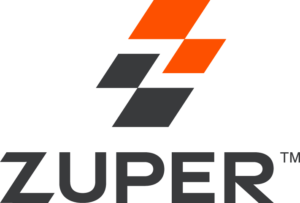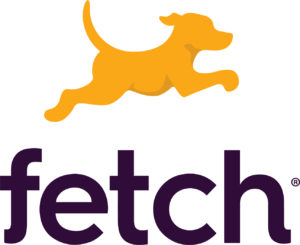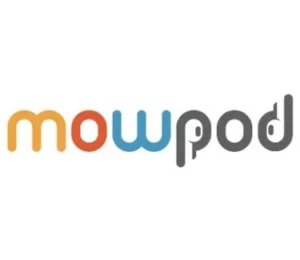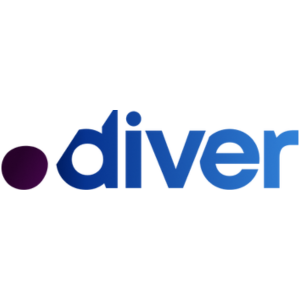Growth from Search vs Social Content in a recession — Erik Huberman // Hawke Media
Erik Huberman
Hawke Media

- Part 1Strategies to Recession-Proof Your Business
- Part 2 Growth from Search vs Social Content in a recession — Erik Huberman // Hawke Media
- Part 3How Agencies Can Adapt in a recession — Erik Huberman // Hawke Media
Show Notes
Quotes
-
“I will start with the difference between search and social. When you are figuring out which channel to look at, it is important to look at context of the audience that you are reaching and what are they doing, why are they there and why are they receiving your ads.” -Erik“With Facebook and Instagram because everybody’s on Facebook and Instagram are just wasting time and they’re bored. So if you have a service or product where you can just grab their attention and get them to buy it, like an impulse buy that is the best channel that you can market on because then again you can identofy your exact type of customer and reach them with copy and creative you’ve hopefully tried and you know is going to work.” -Erik“The downside of these channels is timing. If you have a product that is a solution to a specifically-timed problem, it will be really hard. Let’s say you are a DUI attorney. Assuming they even have the propensity to have a DUI because they love alcohol, timing it right is going to be tough. That is when Google comes in.” -Erik “Google is really good when you are actively looking for a solution to a problem. On the other side, with Google,it’s hard to get on the brand side of it. So leveraging Google for more lifestyle sales doesn’t work. Leveraging Facebook and Instagram for more needs-driven problem solving doesn’t work as well either, so that’s how you compliment the two.” -Erik“Other examples in terms of context is YouTube. I don’t really like YouTube as an advertising channel because generally, you are interrupting someone who is actively trying to watch a video, you’re just annoying. So you get impressions which companies loveto talk about but it doesn’t actually convert. Once in a while, you can get an anomaly but generally not.” -Erik“To grow organically and not pay-to-play, they all have options. YouTube can be your own content strategy which could be instructional. YouTube is the second biggest search engine so if you create compelling content that people are actually looking for, you can do really well there.” -Erik“You can make some organic on Facebook and Instagram for your page. Participating in Facebook conversations groups, organizations, and being part of a community can help. LinkedIn is great for that too.” -Erik“On Google, everyone’s heard about SEO. Frankly, if you can do this well you don’t necessarily need to spend as much money on Google Adwords and inpay-to-play. But, ranking organically is tough. There is a bit of Catch-22 where the better a site does, the more it ranks. It’s a slow and arduous process but it’s also really valuable. It can be a gift that keeps on giving.” -Erik“I’ll tell you how we did it. What we did do when coronavirus first hit is anything that is a longer-term benefit, I cut. I didn’t really cut it per se because I didn’t pull out my marketing budgets. I just took all my long-term efforts aside and I focused on quick wins. So my content strategy went from long-term SEO wins to weekly updates on what is going on in this world under coronavirus such as thought leadership and things that would attract people today and not six months from now.” -Erik“Paid advertising at scale isby far the most expensive part of marketing. The other two pieces, owned and earned aren’t going to be nearly the same budget but they are also a lot less scalable. You can’t just ramp up the budget on owned and earned like I can’t double my budget but I can do that on paid. However, it is a lot more efficient on the other two.” -Erik“Every business is different, it’s really just watching the numbers and figuring out that makes sense for you. But in terms of the peacetime marketing mix, it’s really justwatching where are you getting results, where your weakest link is, and where you need to optimize and build better.” -Erik“In peacetime, you have to think about building the foundation and to me, that is the time where you invest in the page, make sure that you are getting a good return on that and you are taking some of that return and you are starting to not just put it away, hide it on the balance sheet but you are starting to build the mechanisms of your SEO, of your content strategy, of your PR, and that allows you to be somewhat recession-proof because when inevitably recession hits, you don’t have to rely on paid.” -Ben “So it seems like the strategy here for your wartime marketing mix is, you’re not necessarily adjusting the amount that you are spending, you are not necessarily cutting all of your spending budget, you are just focusing on the things that are going to be near-term wins.” -Ben
- Part 1Strategies to Recession-Proof Your Business
- Part 2 Growth from Search vs Social Content in a recession — Erik Huberman // Hawke Media
- Part 3How Agencies Can Adapt in a recession — Erik Huberman // Hawke Media
Up Next:
-
Part 1Strategies to Recession-Proof Your Business
Today we're going to discuss how to adapt and scale your business to be recession-proof. Joining us is Erik Huberman, the Founder and CEO of Hawke Media, which is a full service marketing consultancy, which acts as an outsource CFO for their clients in growing businesses of all sizes and industries on month to month contracts. In part 1 of our conversation, we are going to talk about his strategies for recession proofing your business.
Play Podcast -
Part 2Growth from Search vs Social Content in a recession — Erik Huberman // Hawke Media
Today we're going to discuss how to adapt and scale your business to be recession-proof. Joining us is Erik Huberman, the Founder and CEO of Hawke Media, which is a full service marketing consultancy, which acts as an outsource CFO for their clients in growing businesses of all sizes and industries on month to month contracts. In part 2 of our conversation, we're going to talk about some growth strategies, including how you can grow using search and social content.
-
Part 3How Agencies Can Adapt in a recession — Erik Huberman // Hawke Media
Today we're going to discuss how to adapt and scale your business to be recession-proof. Joining us is Erik Huberman, the Founder and CEO of Hawke Media, which is a full service marketing consultancy, which acts as an outsource CFO for their clients in growing businesses of all sizes and industries on month to month contracts. In part 3 of our conversation, we're going to talk about how agencies can help you adapt for the future.
Play Podcast










